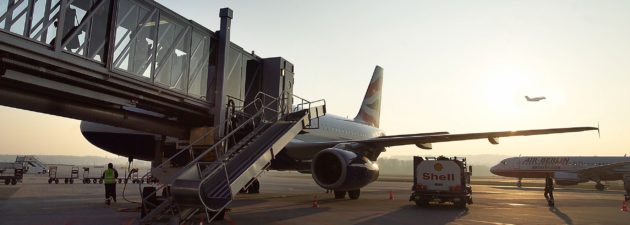Investors have been hit as Carillion plc, a major UK construction and facilities management company, entered forced liquidation suddenly in January, creating negative sentiment for the entire social infrastructure sector in the UK.
Our Infrastructure Securities strategy had been invested in the sector for over six years, using it as a source of low beta, with uncorrelated, steady returns of around 7-8% per annum. At one-point, social infrastructure holdings accounted for 11% of the strategy. Aside from the Carillion event, prospects for growth in the sector generally have cooled, according to recent interim reports from major providers of social infrastructure. Given the inherent limited upside, the team thinks the risks are weighted to the downside and so sold off the portfolio’s exposure in January.
The proceeds of that change have been re-directed into Airports, where allocation has tripled from 5% to 15% of the strategy, despite the sector remaining flat at the start of the year. Airports had an excellent 2017 but some are now overvalued. Sydney Airport and Flughafen Zurich were added based on assumptions for airline capacity growth, as well as two air travel support businesses, ENAV in Italy and BBA in the UK. Continued growth is expected in 2018. Although some investors believe that airports underperform the broader market in a rising yield environment, our research found that in seven out of eight rising rate environments in Germany, European airports outperformed the wider market. Most airport debt is fixed rate or hedged, so rising rates have a minimal impact on cash flow, although they do increase weighted average cost of capital. The fact that rates are being pushed up by stronger economic conditions is good news for passenger growth, with most broker estimates on the rise. Airline capacity growth data is also supportive of continuing growth at European and selected overseas airports.
Sydney is now the second most popular city destination for Chinese passengers (after Seoul) and capacity is growing to meet increased demand. However, the economic tailwinds are pushing some airport valuations up a bit, so we focus on value and growth.
Toll roads and tunnels, the strategy’s largest sector allocation, was flat in January. Macquarie Atlas Roads Group lost 8.7%, after publishing 2017 FY results that generally met expectations. The expected internalisation of management (away from Macquarie Group) should provide substantial future upside.
Groupe Eurotunnel (now called Getlink) rose 5.4%. It recently published 2017 revenue growth of 4%. Its message to shareholders was upbeat as Le Shuttle car traffic was stable, despite the preoccupation with Brexit. Freight traffic was close to the record hit in 2016, whilst Eurostar is back in growth mode.
Although global markets advanced through January, with the MSCI World (LC) up 4%, Infrastructure failed to participate in the rally. The S&P Infrastructure index was up only 0.9%, the average of the largest competing infrastructure securities funds was flat, and the Dow Jones utilities average was down 2.2%.

